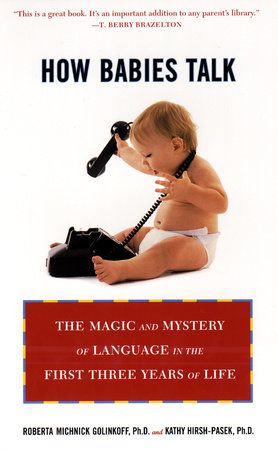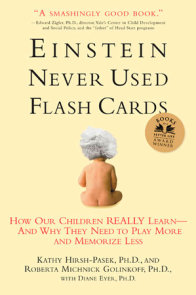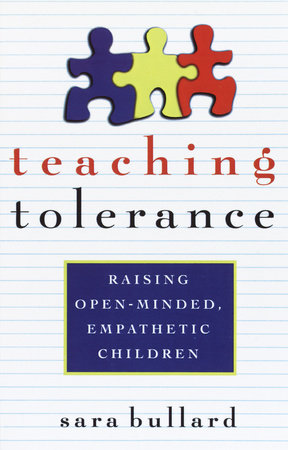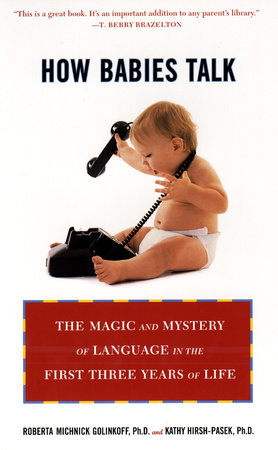

How Babies Talk
By Roberta Michnick Golinkoff and Kathy Hirsh-Pasek
By Roberta Michnick Golinkoff and Kathy Hirsh-Pasek
By Roberta Michnick Golinkoff and Kathy Hirsh-Pasek
By Roberta Michnick Golinkoff and Kathy Hirsh-Pasek
Category: Parenting | Psychology
Category: Parenting | Psychology

-
$24.00
Jul 01, 2000 | ISBN 9780452281738
-
Jul 01, 2000 | ISBN 9781101213087
YOU MAY ALSO LIKE
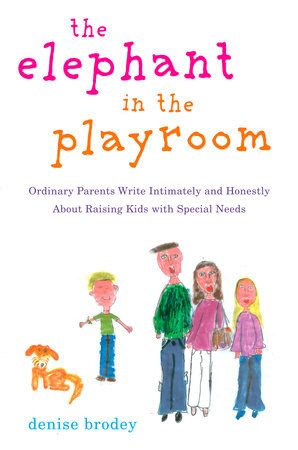
The Elephant in the Playroom
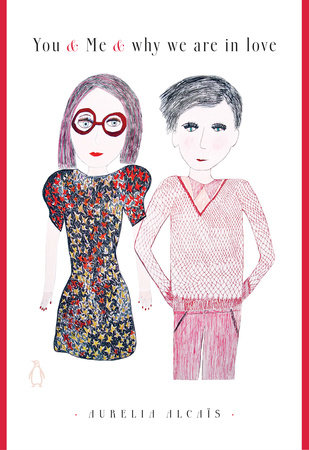
You & Me & Why We Are in Love
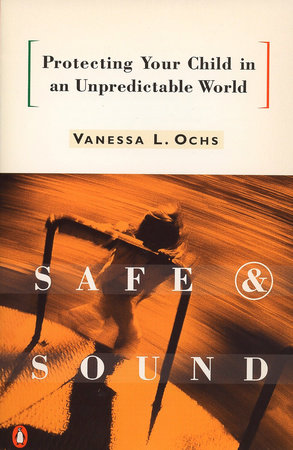
Safe and Sound
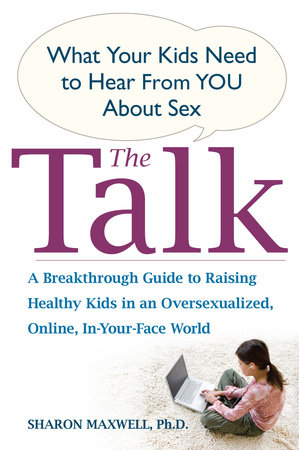
The Talk
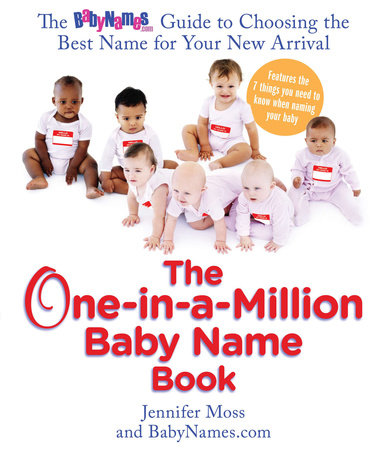
The One-in-a-Million Baby Name Book
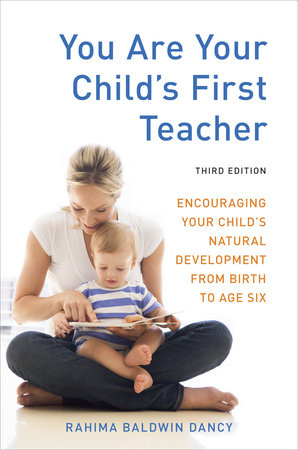
You Are Your Child’s First Teacher, Third Edition
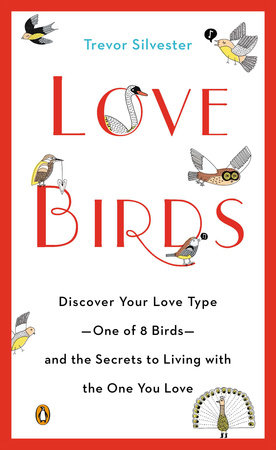
Lovebirds
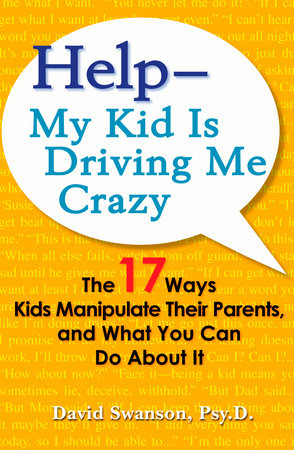
Help–My Kid Is Driving Me Crazy
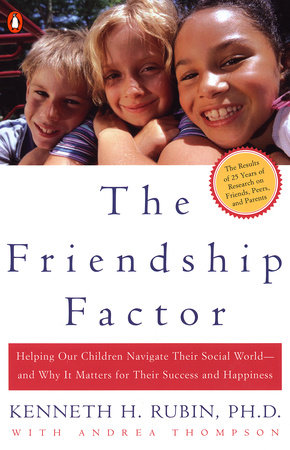
The Friendship Factor
Praise
“This is a great book. It’s an important addition to any parent’s library.”—T. Berry Brazelton
“An in-depth study of language development during the first three years of life… The text is interspersed with activities readers can use to assess the specific development of their own children… useful and interesting to anyone involved with young children.”—Library Journal
“Crisp, clear, concise, often humorous. The contents are unusually substantive for a handbook targeted to parents, as the bibliography of scientific citations confirms. Important scientific results and their applications to daily life are highlighted as lessons under the heading ‘Scientific Sleuthing Pays Off’ and modified for use at home as ‘Try This’ exercises. A key resource for parenting collections.”—Booklist
Table Of Contents
Introduction. Setting the Stage: The Magic of Language Development in the First Three Years of Life
Language Milestones
The Source of Our Knowledge: Scientific Sleuthing
Theoretical breakthroughs
Methodological breakthroughs
Scientific Sleuthing Pays off
Chapter 1. Watch Your Language! The Fetus Can Hear You: Development from Before Birth to Three Months of Age
The Fetus
The Fetal Environment: Home Sweet Home
Baby, Do You Read Me? Hearing Mother’s Voice and Other Sounds
Try This: Can my fetus hear? Can my fetus hear me?
Does Fetal Learning Mean Fetal School?
Birthing the Baby: Will the Newborn Resemble the Fetus?
Try this: Does the newborn react to sounds?
Communicating Through Crying
Mother, Is That You? Newborns Prefer to Hear Mother’s Voice
Distinguishing the World’s Languages
Try This: Does your baby respond to foreign languages?
Face-to-Face: Love at First Look?
Try This: Charting baby’s smiles
Do Mouths and Voices Work Together?
Newborn Copycats
Try This: Can my baby copy me?
The Roots of Conversation
Baby Talk Matters
Try This: Do babies react to baby talk?
More Than Meets the Eye
Scientific Sleuthing Pays Off
Lesson 1. Silence is not golden
Lesson 2. New scientific methods can yield assessment tools
Lesson 3. Overestimate your baby’s capabilities
Chapter 2. Yada-Yada-Yada: The Babbling Period Between Four and Eight Months of Age
Babies Do Babble
How Babies Talk to Us
Try This: Conversations from the Crib?
From Coos and Goos to Babbling
Try This: Are “Mama” and “Dada” real words or just arbitrary sounds?
Why Babies Babble
How We Babble to Babies
Widening the Topics of Conversation
Try This: Finding objects near and far
Finding the Words (and Other Units) in a Stream of Speech
What’s a Word Worth?
Use Your Head! The Headturn Preference Procedure
Try This: Will baby notice disrupted speech?
Learn Your Handle: Lauren, Not Louise
Try This: Does baby respond to her own name?
Once Upon a Time: Babies Recognize Words in Stories
How Do You Mean? Babies Grapple with Word Meanings
Scientific Sleuthing Pays Off
Lesson 1. Hear ye, hear ye: Watch for ear infections
Lesson 2. There is nothing wrong with small talk
Chapter 3. Point-ilism: Parents Become Tools for Babies between Nine and Twelve Months of Age
Learning to Communicate without Words
Finding the Causal Connection: My Signals Can Make Things Happen!
Try This: Can my baby communicate with intention?
How Do Babies Learn to Make Their Point?
Try This: When can baby follow a point?
The Negotiation of Failed Messages: You Just Don’t Get It!
Try This: How does my baby negotiate?
Let the Words Begin!
Preverbal Communication: The Cradle of Meaning
Detecting the Patterns in the Language Stream
The Decline in Distinguishing Among the Sounds of the World’s Languages
Whither the Words?
Try This: Playing games
Scientific Sleuthing Pays Off
Lesson 1. Honor babies’ communicative attempts even before they are intentionally communicative
Lesson 2. Put my thoughts into words!
Chapter 4. First Words: Getting “Hi” between Twelve and Eighteen Months of Age
What Does It Take to Learn a Word?
The Flowering of Vocabulary
The Stars and Stripes and Other Symbols
Try This: Comics in the crib?
The Fertile Path to Real Words
Try This: Creating a diary of protowords and first words
Communicating Efficiently
Try This: Tracking the use of baby’s first ten words
“Home Signs” and “Baby Signs”
Try This: Can my baby learn some baby signs?
Symbols, Categories, Meanings, and Emotions
“Dog,” Not “Dalmatian”; “Hat,” Not “Baseball Cap”: Why Babies Prefer Some Words over Others
Try This: What kinds of words are my baby’s first ten words?
How Do Meanings and Words Come Together?
Saying Your First Words: A Sobering Task
Try This: Does my baby express emotion when she talks?
First Words Take Effort, More for Some Than Others
A Tale of Two Toddlers
Name Callers and Social Sophisticates
Try This: Is my baby a name caller or a socialite? What kind of parent am I?
Word Comprehension Exceeds Word Production
Scientific Sleuthing Pays Off
Lesson 1. More baby talk=More baby’s talk
Lesson 2. There are big individual differences in the appearance of the first words
Lesson 3. Picture book reading is a source of new words
Lesson 4. When do you worry about a lack of words?
Chapter 5. Vocabulary Takes Wing: Eighteen to Twenty-Four Months
The Vocabulary Spurt
Finding the Vocabulary Spurt
Try This: Catching the torrent of words in a diary
Word Leaning Is a Bear (Bare?)
What Are Toddlers Talking About?
Try This: Book reading as a classroom for word learning
Babies Overextend Themselves: Misapplying Words for All the Right Reasons
Try This: Looking for overextensions
Does Sensitivity to Social Cues Lead to the Vocabulary Spurt?
Try This: Is your child using social cues to learn new words?
Do Mental Advances Lead to the Vocabulary Spurt?
Try This: Categorizing obejcts and the vocabulary spurt
Fast Mapping: Novel Names Go with Novel Categories
Try This: Fast mapping and the vocabulary spurt
An Integrated View of the Vocabulary Spurt: It Takes Social and Mental Advances
Individual Differences in Word Learning
Pronunciation: Saying It My Way
Try This: Recording the baby’s favorite mistakes
Boys and Girls: Early Sightings of Mars and Venus
Firstborn Versus Later-Born Toddlers
Social Class Differences in Word Learning
Scientific Sleuthing Pays Off
Lesson 1. The study of normal development helps in understanding language problems
Lesson 2. More language in=More language out
Lesson 3. Watching TV cannot make up for real comunication
Chapter 6. “More Juice!” – Babies Understand and Produce Simple Sentences Between Eighteen and Twenty-four Months of Age
What Toddlers Can Say
Two-Word Sentences Say It All
Try This: Two-word sentences take off! But what do they mean?
What Enables the Baby to Use Two-word Speech?
What Toddlers Can Understand
Investigating Two-Word Productions: What Children Comprehend
Try This: What are the cues my baby relies on to understand sentences?
What Does It Mean to Understand Sentences?
Babies find the units in the language stream
Babies realize that words in sentences describe events in the world
Try This: Can my baby understand that language maps to unique events?
Different arrangements of the units in sentences change sentence meaning
Try This: Does my baby understand that differences in word order signal differences in meaning?
Beyond Word Order: Children Attend to Grammatical Elements
Try This: Is my baby sensitive to grammatical elements?
“With” – A Grammatical Element in Action
Comprehension Far Outpaces Production, But Why?
Scientific Sleuthing Pays Off
Lesson 1. Engage in rich interpretation but don’t bother to correct
Lesson 2. Your baby’s caregiver is your ally
Chapter 7. The Language Sophisticate at Twenty-four to Thirty-six Months: Why? Why? Why?
The Emergence of Grammatical Capability
Adding Glue to the Sentence: Function Words and Particles
Try This: Finding grammatical function words and particles in your child’s speech
Overgeneralizations: It Breaked!
Asking Questions
What’s Up, Doc? Wh-Questions
Why, Why, Why?
Ifs, Ands, and Buts: The Grammatical Spurt
Is It Really Grammar?
The Source of Grammatical Capability in the Human Species
Where Does the Grammar Come From?
A Language Instinct?
The Critical Period: Time Is Running Out
Scientific Sleuthing Pays Off
Lesson 1. When should you worry?
Lesson 2. What should be do or not do to promote language growth?
Lesson 3. It’s never too early to start learning a second language
Chapter 8. “Please” and “Thank You”: Using Language to Get Things Done Between Twenty-four and Thirty-six Months
Mastering the Uses of Language
Learning a Language Is Learning a Culture
What Are You Really Asking? How Toddlers Understand Requests
Try This: How do I ask questions? Does my child make conventional inferences?
How To Ask: Getting What We Want
Try This: Can my child consciously use polite speech?
Learning Social Routines
Conversations with Two-Year-Olds
Try This: Can my child observe conversational rules?
Beyond Conversation: Telling the Stories of Our Lives Through Narratives
Try This: Does my child tell coherent narratives?
Using Language for Fun: Jokes and Pretense
Try This: Does my toddler make jokes?
Scientific Sleuthing Pays Off
Lesson 1. Constructing life stories with your child promotes narrative development
Lesson 2. There’s more to storybooks than meets the eye
Epilogue. Tying It Up: Language Development from Birth to Age Three
How Far Have Children Gone?
Where Is the Child Going?
References
Index
21 Books You’ve Been Meaning to Read
Just for joining you’ll get personalized recommendations on your dashboard daily and features only for members.
Find Out More Join Now Sign In






